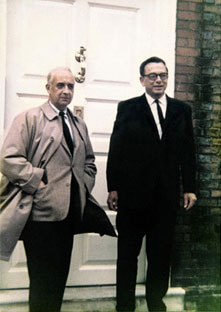The Supreme Law in the Church
. . . the salvation of souls, which must always be the supreme law in the Church, is to be kept before one’s eyes.
— Code of Canon Law, Can. 1752
Would that the church — bishops, priests, deacons, ministers, and laity — obeyed this law.
Added June 1, 2006:
According to (the American adaptation of) GIRM 43, “The faithful kneel after the Agnus Dei unless the Diocesan Bishop determines otherwise.”
Almost certainly “determines” here does not mean personal preference. It seems to have something to do with GIRM 20 (not 387, which deals with other matters than posture), which says in part that “the utmost care must be taken to choose and to arrange those forms and elements set forth by the Church that, in view of the circumstances of the people and the place, will more effectively foster active and full participation and more properly respond to the spiritual needs of the faithful.” In other words, in “determining” the Diocesan Bishop considers his flock, not himself.
Moreover, since according to GIRM 22, “The Bishop should . . . be determined that the priests, the deacons, and the lay Christian faithful grasp ever more deeply the genuine meaning of the rites and liturgical texts and thereby be led to an active and fruitful celebration of the Eucharist,” a determination departing from the stated norm should be introduced pastorally, by providing the faithful with proper catechesis on the reasons for the differing norm and whether this norm is (to use Cardinal Arinze’s oft-quoted words) intended “to regulate posture rigidly” or “to ensure within broad limits a certain uniformity of posture.”
An arbitrary or unexplained determination would therefore unlawful (I am not judging the present case). There is also the matter of application. A determination may be lawful but if its administration is inconsistent, then its application is unjust — inequitable. For example, if a norm is for the entire diocese, punishment for violating the norm must not be limited to parishioners of one parish — that would be inconsistent and unjust (again, I am not judging the present case). Instead, in the words of Canon 1752, “canonical equity is to be observed.” Canon 1752 concludes the entire Code of Canon Law by stating, “the salvation of souls, which must always be the supreme law in the Church, is to be kept before one’s eyes.” This supreme law guides every Diocesan Bishop’s determinations.


